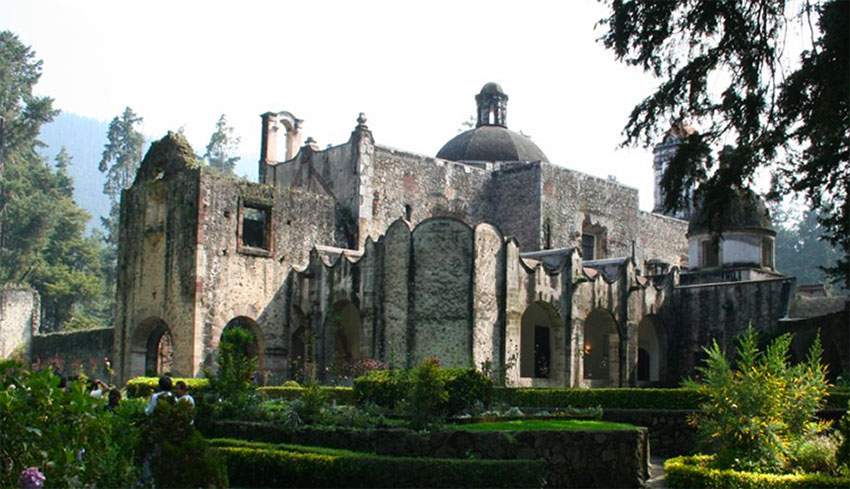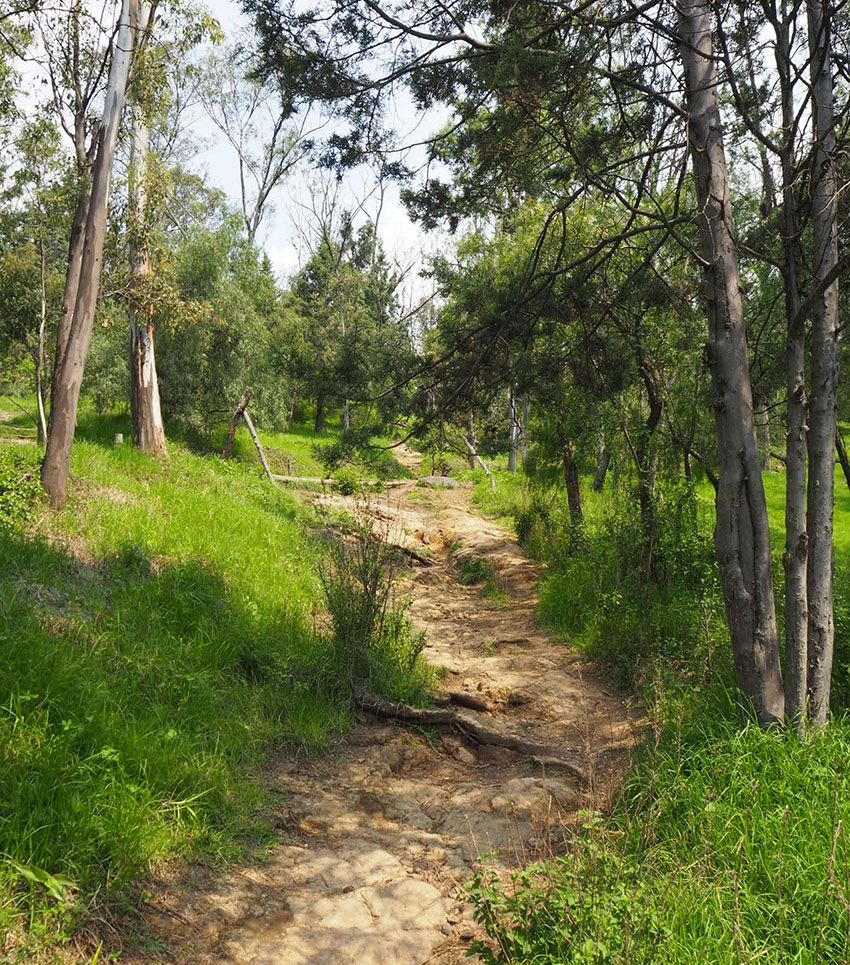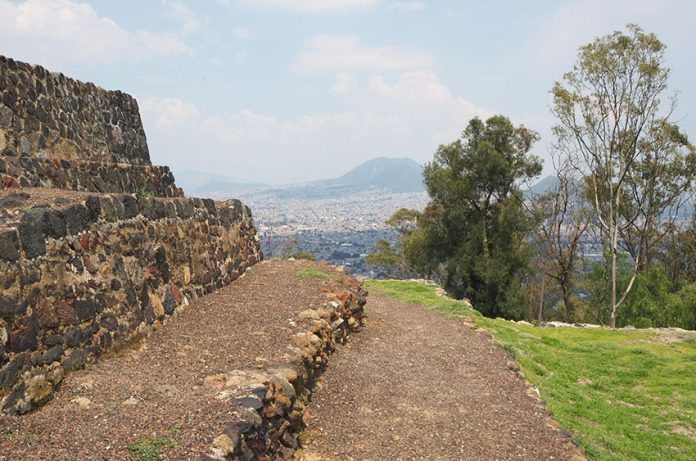Mexico City is 900 square kilometers, making it the fifth largest city in the world based on area. It’s so big that it has multiple national parks inside its borders.
That’s fortunate because they give beleaguered residents some respite from its frenetic hustle and bustle.
Here are two that are well worth a visit.
Parque Nacional Desierto de los Leones
Supposedly named for dandelion fluff that blows in the breeze in the surrounding hills, Desert of the Lions National Park is one of the quickest and most gratifying deep-forest escapes you can make in the city’s hallowed hills.
That’s one explanation of a multitude for the “lion.” The “desert” part seems to have more to do with the general distance from the city, rather than any lack of water. There are several brooks and waterfalls throughout the park.
It appears that the park, stretching between the boroughs of Cuajimalpa and Álvaro Obregón, had never been inhabited, at least not full-time, until the Order of the Barefoot Catholic Carmelites arrived in the early 1600s. Choosing to escape the city and meditate in proper silence, the shoeless brothers established a convent on the grounds in 1606.
But, because of humidity and constant temperature variation, the convent fell into a cycle of disrepair and repair until it was finally abandoned in 1810 as the War of Independence spread through the outskirts of the city. Desierto de los Leones became Mexico’s first protected forest reserve in 1876 and then a national park in 1917.
The convent still stands in beautiful dilapidation and is worth the visit alone. There are grills and picnic tables along the path, if you’ve planned a picnic. But diving directly into a forest of pines, firs and oaks is why we’re here.
A part of the Sierra de las Cruces mountain range, the park’s elevation runs between 2,600 and 3,700 meters, and is an ideal place to lose the city on foot, horse or mountain bike. There’s an impressive amount of wildlife so near the city: bobcats, foxes, white-tailed deer and peregrine falcons, along with endemic and endangered reptiles, though you’re not likely to see many.
But the escape from humans and the overpowering cityscape is simple at Desierto de los Leones. Bring a picnic basket or Oxxo bag and find a quiet hill off the trail. Just don’t leave anything behind.

It’s a striking hike through massive pines. By personal account, the restoration and conservation projects within the park have been successful. A friend that joined me on the hike said it was much tidier than he remembered from the 90s. Unfortunately, these days you can’t get a beer to go from any of the shops or restaurants at the convent parking anymore.
• Enter the park off Highway 15D onto Camino a la Venta, continuing onto Calz. Desierto de los Leones. You’ll arrive at the first parking lot and plenty of trails but continue. Pass the grills and picnic tables to the last parking lot nearest the convent. You’ll know when you’re there.
Parque Nacional Cerro de la Estrella
Parque Nacional Cerro de la Estrella (“The Mountain of the Star”) in Iztapalapa was designated a national park in 1938. Originally it had 1,100 hectares, but the spread of the city has reduced it to a still quite striking expanse of 200 hectares.
Upon arrival, it’s rather annoying that the road — Camino Cerro de la Estrella — is cut off by a police blockade just as you arrive at the park. Turns out that the cordon helps keep squatters from further encroaching on park space. The only cars on the road are park employees or groups of kids heading to the museum.
The Museo Fuego Nuevo (“New Fire Museum”), just a couple of minutes’ walk up the hill, is a petite, charming and very well-managed cultural and archaeological center.

Every 52 years, the two Aztec calendars — the Tonalpohuall (ritual), with 260 days — and the Xiuhpohualli, with 365 days (annual) — converge and restart on the same day. On that day at the Xiuhmolpilli temple on top of the current park the “Binding of the years” ceremony would be performed. It was renamed the “New Fire ceremony” by the Spanish.
It will be a while, but mark your calendar for October 2027 in order to visit the temple during the time of “Binding of the years.” No New Fire Ceremony has been advertised. It’s probably just as well, since the ceremony involves the removal of someone’s heart.
The museum is dedicated to the archaeological and cultural history of the park including explanations of the two calendars and the history of the Teotihuacan, Toltec, Chichimeca, and Culhua-Mexica cultures. Human remains have been discovered on the site dating back 9,000 years, and there are over 100 caves, many with evidence of human habitation.
From the museum it’s a steep 15 to 20-minute walk to the temple. There are meandering trails on the sides of the mountain or shortcut trails straight up, once you have your bearings. When the smog is limited, the view of the city is breathtaking. The walk among eucalyptus, pine and cedar provides great views, regardless of pollution.
There is the noise of some circular saws in the distance and the showerhead spray-like “suzz” of mass traffic, but it’s amazingly quiet in this tiny forest just a few hundred meters above the city. Once you reach the fenced-in area at the top, follow it to the opening. From there turn left to the caves or go straight up to the temple platform for 365-degree views of the city sprawling before your eyes.
•Museo Fuego Nuevo is located just above Camino Cerro de la Estrella and San José, Iztapalapa. Parking is available on San José. The park is open Tuesday-Sunday, 9:00am to 5:00pm. The national park continues beyond the museum and is open daily, 5:00am to 7:00pm.
